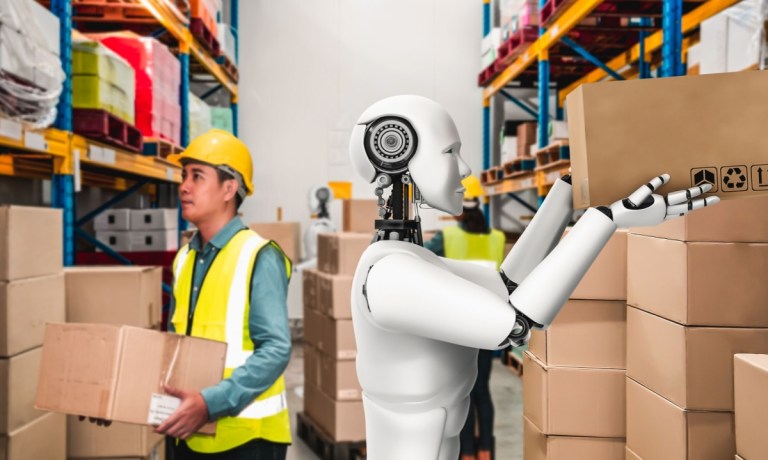The technology addresses a barrier that has long prevented widespread retail, logistics and manufacturing automation: robots’ inability to handle diverse objects and adapt to new environments reliably. The development comes as businesses face mounting pressure to streamline operations amid labor shortages and rising costs.
“Industries beyond warehousing and retail, such as healthcare, agriculture, and hospitality, may see considerable impacts,” Kaveh Vahdat, founder and CEO of RiseAngle, a generative artificial intelligence (AI)-powered game creation company, told PYMNTS. “In healthcare, for example, robots could take on logistical tasks, patient support and sanitation, potentially leading to more streamlined services but also reducing the need for specific support roles. Agriculture could leverage robotic systems for labor-intensive tasks like planting and harvesting, but this could also reduce demand for seasonal and manual labor. In hospitality, robots handling room service, cleaning and deliveries might limit front-line roles while allowing staff to focus on customer-facing tasks.”
There’s growing interest in AI to power robots. OpenAI recently hired Caitlin “CK” Kalinowski, Meta’s former head of augmented reality glasses, to lead its robotics and consumer hardware initiatives. The move signals OpenAI’s growing focus on bringing AI into the physical world, alongside its investment in robotics startup Physical Intelligence.
Spider-like AI robots from Israeli firm Verbotics made their U.S. debut in Dallas. They used cameras and sensors to clean high-rise windows while eliminating human risk.
Smarter Bots
Physical Intelligence reportedly is implementing new control software designed to make robots more adaptable and capable of handling complex tasks autonomously. The software aims to change how robots operate in unpredictable environments. The funding round, led by Jeff Bezos, Lux Capital and Thrive Capital, values the company at $2 billion, reflecting confidence in its potential to advance robotics and automation technology.
Advertisement: Scroll to Continue
The new pi-zero software leverages advanced machine learning algorithms, enabling robots to perform diverse tasks such as folding laundry, bagging groceries and extracting toast from a toaster. By integrating data from multiple robots, pi-zero allows for real-time adjustments and efficient task execution, making robots more capable of handling highly specialized tasks with improved efficiency.
Robot Boom
AI-controlled robots have gained a foothold in commercial sectors, taking on operations from warehouses to store aisles. As businesses face mounting pressure to streamline logistics and reduce costs, intelligent robots increasingly take on complex tasks traditionally performed by humans — with precision and efficiency.
At the heart of this surge is Amazon, which has expanded its robotic capabilities across its sprawling network of fulfillment centers. Amazon introduced the Sparrow robot, which can select and organize products of various shapes and sizes with AI-enhanced dexterity. The company says Sparrow has helped reduce labor-intensive sorting times, enhancing the fulfillment speed for millions of packages daily. The move is part of Amazon’s broader initiative to automate repetitive tasks, allowing its human workforce to focus on higher-order customer service roles.
Walmart is leveraging AI-powered floor scrubbers with cameras to monitor inventory across Sam’s Club stores, capturing 20 million shelf photos daily. This system alerts stockrooms automatically and has improved employee productivity by 15% since deployment.
Robots are also reshaping customer interactions. In Japan, SoftBank’s “Pepper” robot, equipped with conversational AI, has seen a recent upgrade and deployment in retail settings to assist customers with navigation and product information.
The proliferation of AI-controlled robots raises questions about the future of employment in sectors that rely heavily on manual labor. While executives at these companies argue that robots are meant to augment human workers rather than replace them, labor advocates are wary of the implications for low-skill jobs as machines take on an ever-increasing share of tasks.
For all PYMNTS AI coverage, subscribe to the daily AI Newsletter.




